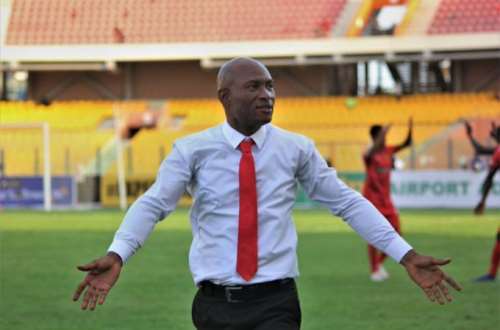
The mood in Kumasi is tense. Asante Kotoko, one of Ghana’s most storied football clubs, has once again become the centre of media attention—not for a dramatic win or a title push, but for parting ways with head coach Prosper Narteh Ogum.
In an interview with a local station, Communications Director Sarfo Duku addressed the decision with sharp clarity: performance was the issue.
“We gave him complete freedom to recruit players of his choice, so if the players aren’t performing and management is doing its part, and it’s clear that the thing is about performance, who is responsible for improving the team’s performance? It is the technical team,” Duku stated.
Ogum, who returned to the club with high hopes and the backing of a passionate fan base, had overseen a tumultuous campaign riddled with inconsistency. Despite early optimism, Kotoko struggled to string together wins, often appearing disjointed and lacking cohesion on the pitch. The team’s slide down the league table eventually became impossible to ignore.
The decision to sack Ogum has sparked mixed reactions among supporters. Some argue that the coach wasn’t given enough time to rebuild the squad he handpicked. Others say the team’s performances, especially in key matches, were unacceptable for a club of Kotoko’s stature.
Behind the scenes, sources close to the club suggest growing tension between the technical team and some members of management in recent weeks. Questions about tactical decisions, substitutions, and player morale were reportedly raised during internal meetings, with results failing to back up Ogum’s approach.
For now, the club has yet to name a permanent replacement, but the pressure is already mounting. Kotoko fans, known for their unwavering passion, are demanding not just results but a return to the dominant football their club is known for.
With the season still unfolding, the question remains: will the sacking of Ogum spark a turnaround, or is this just the latest chapter in a deeper identity crisis within the Porcupine Warriors?


